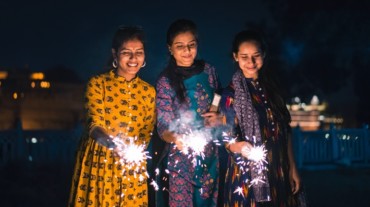
It has been more than two years, and the world continues to reel against the microscopic villain, coronavirus. Wave after wave, variant after variant emerged, sparking fear among the general population. With the new subvariants BA.5.1.7 and BF.7 here, a debate has surfaced regarding a fresh wave of Covid-19 infections.
The Omicron subvariants, which first emerged somewhere in Mongolia in China, have entered India. As per reports, the Gujarat Biotechnology Research Center has discovered the first case of BF.7 in India. Since the cases of new subvariants of Omicron have emerged yet again, it is crucial to take precautions especially ahead of Diwali celebrations.

The new subvariants BA.5.1.7 and BF.7, otherwise known as Omicron spawn, were found in the inner autonomous region of Mongolia, China. It has now spread to many parts of China, and cases have also been found in the United States. Some cases have also been found in parts of Europe.
Dr Vijay Arora, Senior Director, of Internal Medicine, Max Hospital, Patparganj, New Delhi, warns that the new wave of coronavirus infection may hit this winter if people aren’t more cautious. “This will be fuelled in part by increased social mixing and in part by the multiple emerging Omicron subvariants that are more immune evasive.”
BF.7, which is a part of BA.2.5.17, is more dangerous and spreads very fast. It escapes immunity and can even infect vaccinated people who have been previously immunized with full doses and boosters, he added.
According to the expert, there is a need to increase immunization as new Covid-19 variants emerge. He states that the reason for this is the decrease in the vaccine effectiveness and the higher immune evasion property of the Omicron subvariants. Hence, there is a need for the administration of the second booster for people who are at a higher risk of severe disease.
“Although boosters containing BA.5 are expected to be the most effective against currently circulating variants. Booster vaccine, whether its original or bivalent vaccine, BA.1, or other variant adopted vaccines will provide additional protection. For the general population, the increased protection of the third dose with your original vaccine or if available with the variant adopted vaccines for those with a greater risk of severe disease such as people who are over 60, immuno-compromised patients,” he adds.
What is the right time to get the booster dose against Covid-19? Dr Arora says there should be at least five months of gap between the last infection and the booster dose or the immune booster dose – the fourth dose. But the gap can be reduced to three months in people who are immuno-compromised. Also, people who are at high risk, especially healthcare providers, can be given a booster shot after three months.

Here are some precautions that come in handy to curb the Covid-19 surge ahead of Diwali, as suggested by Dr Arora:
As the festive season approaches, we should avoid large gatherings and must follow Covid-appropriate behaviour of maintaining a distance of 3 feet and masking ourselves. Supporting and maintaining surveillance efforts in each country and region is key to prompt identification of the viral variant or subvariants with the potential impact on the diagnosis, vaccine strategy, and treatment.
Select Topics of your interest and let us customize your feed.
PERSONALISE NOW